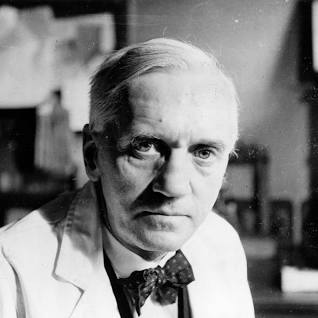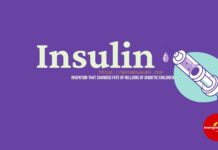Throughout history, certain individuals have illuminated the path of scientific progress, their brilliance illuminating the world around them. Among these luminaries, Alexander Fleming, a Scottish bacteriologist, shines bright for his groundbreaking discovery of penicillin.
Born in Scotland in 1881, Fleming’s relentless pursuit of knowledge led to one of the most significant medical breakthroughs in history. This essay delves into the life and work of Alexander Fleming, his extraordinary contribution to the world of medicine, and the far-reaching impact of his discovery.
About Alexander Fleming:
Alexander Fleming’s journey began in the quaint village of Lochfield, Scotland, where he was born on August 6, 1881. The son of a farmer, Fleming faced financial struggles throughout his early life. Despite the odds, he demonstrated a keen intellect and a passion for learning. After receiving a basic education in local schools, he embarked on a journey to pursue higher education at St. Mary’s Hospital Medical School in London.
Fleming’s academic journey was not without challenges. While studying medicine, he worked as a shipping clerk to support himself financially. Despite the demanding workload, he graduated with distinction, earning a medical degree in 1906. His deep-rooted curiosity about the natural world and human health inspired him to delve into research, particularly in the field of bacteriology.
Interesting Fact:
Beyond his scientific brilliance, Fleming harbored a passion for art. In his leisure time, he would immerse himself in sketching and painting, finding solace in the world of creativity. This blend of artistic insight and scientific acumen allowed him to approach challenges with a unique perspective, culminating in his life-changing discovery.
Contribution: The Discovery of Penicillin
In 1928, while diligently researching Staphylococcus bacteria at St. Mary’s Hospital, Alexander Fleming stumbled upon an accidental revelation that would alter the course of medicine. After returning from a brief vacation, he noticed something peculiar in a Petri dish containing Staphylococcus cultures – a blue-green mold had unintentionally contaminated the dish. Astonishingly, Fleming observed that the mold had inhibited the growth of the surrounding bacteria.
Curiosity piqued, Fleming thoroughly examined the mold, identified as Penicillium notatum. He deduced that the mold released a substance with potent antibacterial properties, capable of fighting harmful bacteria while sparing human cells. Fleming named this revolutionary substance “penicillin.”
Details of the Discovery:
Fleming’s astute observation led him to conclude that penicillin possessed antibacterial properties capable of fighting harmful bacteria while leaving human cells unharmed. This revolutionary finding opened the door to the era of antibiotics.
To understand the full potential of penicillin, Fleming conducted rigorous experiments. He successfully isolated and purified the penicillin compound, demonstrating its efficacy against a wide range of bacteria. His groundbreaking work provided the foundation for the development of penicillin as a potent therapeutic agent.
Impact on Medicine:
Fleming’s discovery of penicillin had a profound impact on the field of medicine. Before antibiotics, bacterial infections were rampant and deadly, claiming countless lives. With the advent of penicillin and subsequent antibiotic development, the mortality rate from bacterial infections plummeted. Simple infections like pneumonia and strep throat, once life-threatening, could now be effectively treated with antibiotics.
During World War II, penicillin became a crucial asset in military medicine, saving innumerable lives and averting the spread of infections among soldiers and civilians. Penicillin played a pivotal role in the treatment of wounded soldiers, significantly reducing the number of fatalities due to infections. The widespread availability of penicillin after the war revolutionized healthcare, and infectious diseases that were once death sentences became manageable and curable.
Penicillin’s impact extended beyond the battlefield and hospitals. It enabled major advancements in surgery and medical treatments that were previously hindered by the risk of infection. Penicillin’s success encouraged further research and development of antibiotics, ushering in an era of medical innovation and enhanced patient care.
Challenges of Antibiotic Resistance:
Despite the immense benefits of antibiotics, the overuse and misuse of these life-saving drugs have led to a global concern – antibiotic resistance. Bacteria have evolved to develop resistance to antibiotics, rendering some of these precious medications ineffective. This has created an urgent need for responsible antibiotic use and ongoing research to develop new antibiotics and alternative treatment methods.
To address antibiotic resistance, it is crucial to adopt a comprehensive approach. This involves promoting responsible antibiotic use in human and veterinary medicine, optimizing infection prevention and control, and investing in research to identify new classes of antibiotics. Fleming’s discovery of penicillin serves as a reminder of the importance of antibiotic stewardship and the need for a collective effort to preserve these valuable medications for future generations.
Legacy:
In 1945, Alexander Fleming’s groundbreaking discovery of penicillin earned him the Nobel Prize in Physiology or Medicine. His work paved the way for the development of antibiotics that continue to be a lifeline in the battle against infectious diseases.
Fleming’s legacy extends far beyond his own discovery. He ignited the spark of curiosity and inspired countless scientists to explore nature’s wonders in search of solutions to global health challenges. His approach to scientific research, characterized by keen observation and an open mind, serves as a model for aspiring scientists worldwide.
Moreover, Fleming’s dedication to public health was unwavering. He advocated for the responsible use of antibiotics, cautioning against their misuse and over-prescription. His foresight in recognizing the potential consequences of antibiotic resistance set an example for responsible antibiotic stewardship that continues to guide medical practices to this day.
Fleming’s profound influence on the field of medicine also led to the establishment of the Alexander Fleming Laboratory Museum in London, preserving his legacy for future generations to admire and learn from.
To pen down, Alexander Fleming’s discovery of penicillin marks a pivotal moment in the history of medicine. His keen observation and scientific prowess led to a serendipitous breakthrough that saved countless lives and transformed the world of healthcare. Penicillin remains one of the most significant medical discoveries, serving as a beacon of hope in the fight against infectious diseases.
Fleming’s legacy continues to inspire scientists worldwide, urging them to embrace the power of curiosity and perseverance in scientific exploration. As we navigate the challenges of antibiotic resistance, his dedication to responsible antibiotic use serves as a guiding light in preserving the efficacy of these precious medications.
Alexander Fleming’s contribution to science and humanity will forever be etched in history. His journey from a small Scottish village to the forefront of medical innovation stands as a testament to the potential of human ingenuity.
Let us carry his torch forward, embarking on a quest to unlock nature’s secrets, improve global health, and leave an enduring legacy for generations to come. The profound impact of penicillin serves as a reminder of the transformative power of scientific discoveries, motivating us to continue seeking innovative solutions to improve human health and well-being.
By: Samarth Kharbanda
Write and Win: Participate in Creative writing Contest & International Essay Contest and win fabulous prizes.
















